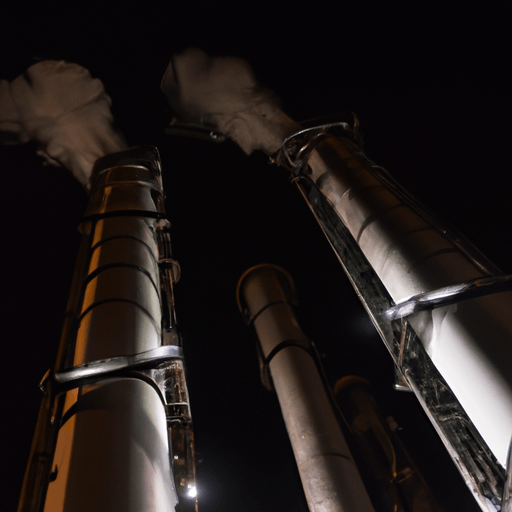The Negative Effects of Industrialization on the Environment
Industrialization has had a tremendous impact on the environment. From air and water pollution to resource exploitation and biodiversity loss, industrialization has had a profound effect on global climate, air, water, and soil quality, and the diversity of life. In this article, we will discuss the direct and indirect consequences of industrialization on the environment, examples of environmental destruction caused by industrialization, and potential solutions to mitigate the environmental damage.
Direct Effects of Industrialization on the Environment
Industrialization has had a direct impact on the environment in terms of air and water pollution, resource exploitation, and other environmental destruction. Air pollution, for example, is a direct consequence of industrialization. With the burning of fuels for energy production, manufacturing, and transportation, large amounts of pollutants such as carbon dioxide, sulfur dioxide, and nitrogen oxide are released into the atmosphere, leading to air pollution. This in turn leads to global warming, acid rain, and other negative environmental effects.
Industrialization has also led to water pollution, which is another direct consequence of industrialization. Industrial operations often release pollutants such as heavy metals, petroleum products, and other toxic substances into water bodies, leading to water pollution. This can have serious consequences on aquatic life and humans, as it can lead to the contamination of drinking water and other sources of water used by humans.
Finally, industrialization has led to resource exploitation, which has a direct effect on the environment. The extraction of resources such as oil, coal, and minerals for industrial use has had a devastating effect on the environment, as it has led to the destruction of habitats, the loss of biodiversity, and the disruption of ecosystems.
Indirect Effects of Industrialization on the Environment
In addition to the direct effects of industrialization on the environment, there are also indirect effects. For example, industrialization has led to a rapid increase in population, as more people are needed to work in factories and other industrial operations. This in turn has led to the overuse of natural resources, such as water, land, and minerals, as well as an increase in pollution, as more people means more emissions.
Industrialization has also led to deforestation, as forests are cleared for the construction of factories, roads, and other infrastructure. This has had a devastating effect on biodiversity and ecosystems, as it has led to the destruction of habitats and the loss of species.
Finally, industrialization has led to global climate change. As more carbon dioxide is released into the atmosphere, it traps heat, leading to an increase in global temperatures. This has had a devastating effect on the environment, leading to more extreme weather events, sea level rise, and other negative environmental effects.
Solutions to Mitigate Environmental Damage Caused by Industrialization
There are several potential solutions to mitigate the environmental damage caused by industrialization. One solution is to reduce the use of fossil fuels and switch to renewable energy sources, such as solar and wind power. This will help reduce air and water pollution, as well as reduce the emissions of greenhouse gases. Additionally, industrial operations should be required to implement pollution control measures, such as using cleaner production methods, to reduce the amount of pollutants released into the environment.
Another solution is to reduce resource exploitation, such as by implementing sustainable resource management practices. This will help reduce the destruction of habitats and the loss of biodiversity, as well as reduce the disruption of ecosystems. Additionally, reforestation projects should be implemented to help restore habitats and biodiversity.
Finally, individuals can help mitigate the environmental damage caused by industrialization by reducing their own consumption of natural resources, such as water and energy. Additionally, individuals can reduce their carbon footprint by driving less, using public transportation, and eating a plant-based diet.
Conclusion
Industrialization has had a profound effect on the environment, leading to air and water pollution, resource exploitation, and other environmental destruction. To mitigate the environmental damage caused by industrialization, solutions such as switching to renewable energy sources, reducing resource exploitation, and reducing individual consumption of natural resources should be implemented. Additionally, individuals can help by reducing their own carbon footprint.


















Comments
Leave a Comment